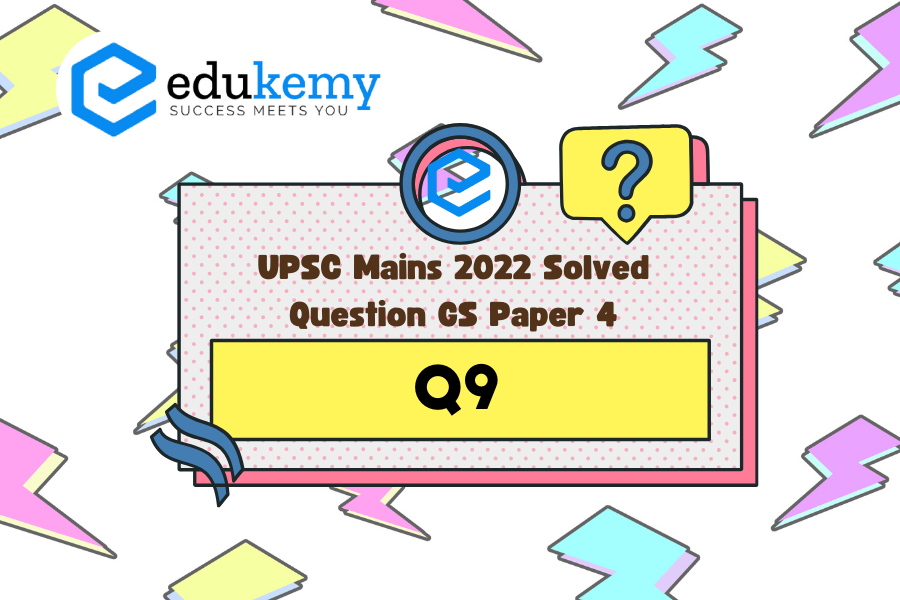The Union Public Service Commission (UPSC) General Studies Paper 4, often referred to as GS 4, is a significant component of the Civil Services Examination in India. This paper focuses on ethics, integrity, and aptitude, aiming to assess candidates’ ethical and moral reasoning, decision-making abilities, and their understanding of governance-related issues. The 2022 GS 4 Solved Question Paper serves as a crucial resource for aspirants, providing insights into the exam’s structure, the type of questions asked, and exemplary answers. Through a comprehensive analysis of this paper, candidates can refine their preparation strategies, enhance their ethical understanding, and cultivate the aptitude necessary for serving the nation with integrity and excellence in administrative roles.
Contents
- 1 Q: Online methodology is being used for day-to-day meetings, institutional approvals in the administration and for teaching and learning in education sector to the extent telemedicine in the health sector is getting popular with the approvals of the competent authority. No doubt it has advantages and disadvantages for both the beneficiaries and system at large. Describe and discuss the ethical issues involved in the use of online method particularly to vulnerable section of society. (Answer in 150 words) 10
- 2 Answer
- 3 In case you still have your doubts, contact us on 9811333901.
Answer
The use of online methodology for day-to-day meetings, institutional approvals, and teaching and learning has become popular in recent years, especially during the COVID-19 pandemic. While it has several advantages, such as increased accessibility and convenience, it also raises several ethical issues, particularly for vulnerable sections of society.
One ethical issue is the digital divide, which refers to the gap between those who have access to technology and those who do not. Vulnerable sections of society, such as the elderly, low-income households, and people with disabilities, may not have access to the necessary technology or internet connectivity, thus limiting their ability to access online services and benefits.
Another ethical issue is the potential for privacy and security breaches. Online platforms may collect and store personal data, which may be vulnerable to hacking and misuse. Vulnerable sections of society, such as children and elderly people, may be particularly at risk of privacy violations.
Moreover, online methodologies may also perpetuate existing social inequalities, such as gender, caste, and race. For instance, women may face harassment and discrimination online, and people from marginalized communities may face online hate speech and cyberbullying.
Therefore, it is essential to address these ethical issues and ensure that online methodologies are inclusive, safe, and accessible to all. The government and other stakeholders must invest in ICT infrastructure, capacity building, and awareness programs to bridge the digital divide and ensure that vulnerable sections of society have access to technology and internet connectivity. Additionally, online platforms must have robust privacy and security measures, and adequate legal frameworks must be in place to protect the rights of citizens. Finally, efforts must be made to promote digital literacy and address online hate speech and discrimination.
In case you still have your doubts, contact us on 9811333901.
For UPSC Prelims Resources, Click here
For Daily Updates and Study Material:
Join our Telegram Channel – Edukemy for IAS
- 1. Learn through Videos – here
- 2. Be Exam Ready by Practicing Daily MCQs – here
- 3. Daily Newsletter – Get all your Current Affairs Covered – here
- 4. Mains Answer Writing Practice – here


